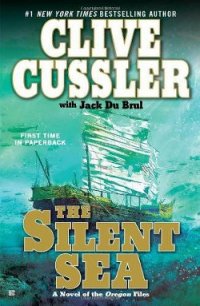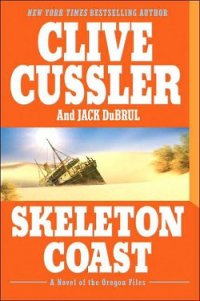[The Girl From UNCLE 03] - The Golden Boats of Taradata Affair - Latter Simon (книги читать бесплатно без регистрации полные TXT) 📗
Жалоба
Напишите нам, и мы в срочном порядке примем меры.
[The Girl From UNCLE 03] - The Golden Boats of Taradata Affair - Latter Simon (книги читать бесплатно без регистрации полные TXT) 📗 краткое содержание
[The Girl From UNCLE 03] - The Golden Boats of Taradata Affair читать онлайн бесплатно
CHAPTER ONE: TIME WAS AND IS
MANUEL PALAGA was a pirate. Ruthless, efficiently calculating all odds against him, hedging his risks, never overreaching himself, trusting no one person though appearing to trust all. He worked the cargo runs around the islands, extended to the African coast, created a network of spies and sources of information as detailed as those of a modern tax collector.
When Palaga ordered his ships out from their hidden coves and bays, he knew to the last golden piece exactly the value of his intended victims. Few failures are recorded, but he was the only pirate captain ever to give his cutthroat crews as high a reward for failure as for success. But if one ship of his fleet of pirateers seemed to be too often unlucky in its efforts, its captain and officers disappeared, the crew being dispersed to other ships.
Those were not the glamorous days so many writers of history have claimed them to be. Most pirates ended their careers by being hanged and quartered, murdered by their own crews or in drunken orgies ashore. But not Manuel Palaga. Murderer and ruffian he undoubtedly was, and no chivalrous upholder of the rights of women. He is believed to have been married and is on record as admitting paternity of at least twenty-four children between 1790 and 1820, though his legal wife died childless.
For the latter twenty of those thirty years, Palaga was shore-based, which accounts not only for certain obvious sexual activities but also for his good health during a period when other pirate captains were suffering from stretched necks and similar hazards of their then overcrowded profession.
Manuel Palaga did in fact become a pirate of the pirates, but not upon the high seas. He had based himself on the shores of a white-sand bay which had a natural harbour of flame-pink coral. The land was lush in its semi-tropical climate, having abundant fresh fruit, root crops and water. It also had periodic hurricanes, but none worse than the storms Palaga and his ship had survived at sea.
He had been resting his crew, replenishing his ship's stores and counting his own piracy spoils when another pirate ship sailed into the bay. Palaga promptly invited the captain and officers ashore, gave them to understand he had been granted governing rights of this island with its pleasant bays and coves, and charged them harbour dues. When they refused to pay, he accused them of piracy, held a mock court and hanged them all.
His men emptied their ship of its pirated cargo, bound its crew to their own masts and set the ship on fire. But Palaga's men had overlooked a number of kegs of gun powder. When the flames reached below-decks the vessel went up in a million flaring pieces. It also raised a huge curving wall of coral in great chunks, and in so doing cleared a deep channel through which even large ships could enter the bay in safety. Skilled engineers could not have made a more perfect deep-water harbour.
Palaga built wharfs, erected storage sheds, and from 1810 to 1820 created a township, its staple industry based upon trade with all seagoing craft. He sold fresh water, fruit, vegetables and other supplies. He bought pirated goods at his own prices from pirates already harried by a growing number of British, American, French and Spanish patrol ships and obtained contracts to service and supply the patrol ships, selling to them — at high prices — many of the goods stolen from cargo ships they had failed to protect on the high seas. From this trade grew the more solid import-export business which, for fifty years, made the island, for its size, one of the richest in the world.
After a lifetime of pillaging, murder, extortion, rape, arson, blackmail, forgery and the building of a city, Manuel Palaga was peacefully paddling with some of his favourite children when he stepped on a stone fish and died in agony half an hour later.
There was no lack of heirs to his fortune, nor to his leadership, the island being known as "the island of a thousand bastards".
The island is, for that matter, still known by this description, though its people long ago corrected Manuel's oversight and brought in a few priests to restore some until then unobserved moral values. Among the islands, indeed, the name of Palaga is synonymous with bastard, but on the island itself it now represents the creme-de-la-creme of society, with Palaga City the core, the hub, the crown, the whatever-it-is-we've-got-the-most of its own special self.
Palaga is a name on the airline maps, the lush venue of the luxury liners, the homing place for ships sailing under its high-priced flag of convenience, the clearing house for drugs, the exchange mart for diamond and gold smugglers, a free port — and the island claims to possess the most beautiful shoreline in the world. It is, in fact, back in the piracy business, the sole difference being that the victims come to the pirates with a gleam in their eyes, a smile on their lips and cash in their pockets.
Some visitors are sunk without trace. Palaga has a fine hospital service, abounds with luxury clinics specializing in high-cost illnesses whose doctors all cooperate with the police department.
The Palaga police are unique. Other police forces in the world have their quota of regrettable corruption. In Palaga, all the police are corrupt. As most of their customers are also this way inclined, this makes for an amicable understanding between them. The set-up enables inquests to function smoothly and swiftly, and suitable death certificates are issued without messy details.
In the old days, pirates seldom took prisoners unless they could be made to work. Nor does modern Palaga. The "plank" is still walked — back on to a ship or on to an aircraft — quick, slick and no argument. Drunks are sobered at a clinic, the fees being extracted from their wallets or belongings. There are no beggars or shanty hovels housing an illiterate poor, because there are no poor. Visitors must show an exceptionally large sum of cash or deposited credits. This tends to keep down the harpies, prostitutes and husband-hunters because the Palaganians practise full equality of the sexes — money-wise. They have a swelegant sufficiency of their own beautiful women, and visas to lone women are granted only after substantial cash deposits have been made in the Palaga City Bank.
The police in many large cities often allow certain clubs to remain open because they know the underworld makes use of them. It is easier to sweep a net through "usual haunts" and this saves time and manpower in searching a thousand odd hidey-holes. In relation to International Law Enforcement working through its many organizations, Palaga is in the same category. A couple of bombs would blow it off the map; a combined boycott or world-enforced sanctions might kill it; an outlawing of its currency would strangle most of its activities. But it is an island of beauty in the sun. Many a jaded police chief has enjoyed its hospitality while connecting up the activities of a crime syndicate. Politicians use it as neutral territory for close-huddled conferences. Spy-catchers and spy-matchers follow tracks through Palaga with the regularity of commuters. It is the sun and fun run, the seek and hide glide, the X-marks-the spot lot, the sublime clime for the climb sublime.
Flows the aquamarine sea calm-rippled between the flaming coral arms, shave-foam breakers on the silver sands, back-dropped by endless-varied colour, stepping over sculptured, awning-eyed hotels, emerald lawns fronting apartment houses with flower-rich fountain-played sun terraces. Houses of all styles, chateau, hacienda, ranch, baroque and arabesque, mosque and minaret — you name it, we've got it — dapple the olive hills, flared windows vying with the brilliant stars, throwing a rainbow halo up to the feet of Climb Sublime.
![[The Girl From UNCLE 03] - The Golden Boats of Taradata Affair - Latter Simon (книги читать бесплатно без регистрации полные TXT) 📗](/uploads/posts/books/56869/56869.jpg)

![[The Girl From UNCLE 01] - The Global Globules Affair - Latter Simon (е книги .txt) 📗](/uploads/posts/books/56868/56868.jpg)


